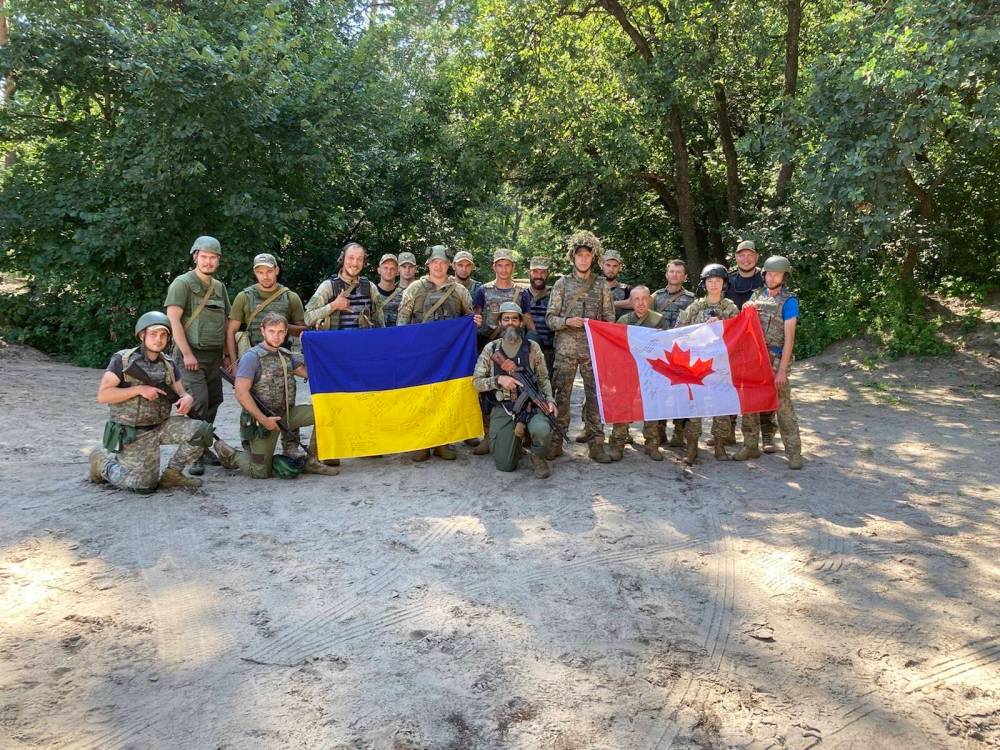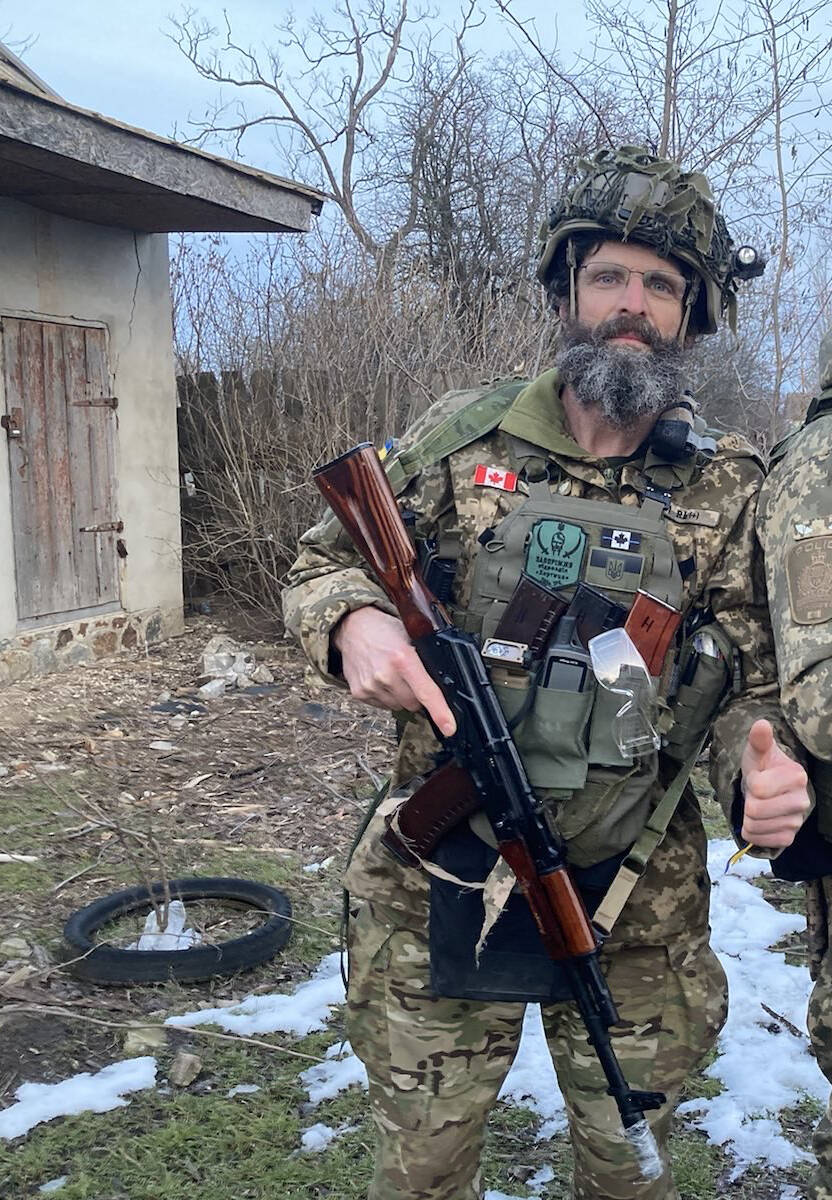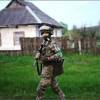Manitoban resigned to fate while fighting in Ukraine
Advertisement
Read this article for free:
or
Already have an account? Log in here »
To continue reading, please subscribe:
Monthly Digital Subscription
$0 for the first 4 weeks*
- Enjoy unlimited reading on winnipegfreepress.com
- Read the E-Edition, our digital replica newspaper
- Access News Break, our award-winning app
- Play interactive puzzles
*No charge for 4 weeks then price increases to the regular rate of $19.00 plus GST every four weeks. Offer available to new and qualified returning subscribers only. Cancel any time.
Monthly Digital Subscription
$4.75/week*
- Enjoy unlimited reading on winnipegfreepress.com
- Read the E-Edition, our digital replica newspaper
- Access News Break, our award-winning app
- Play interactive puzzles
*Billed as $19 plus GST every four weeks. Cancel any time.
To continue reading, please subscribe:
Add Free Press access to your Brandon Sun subscription for only an additional
$1 for the first 4 weeks*
*Your next subscription payment will increase by $1.00 and you will be charged $16.99 plus GST for four weeks. After four weeks, your payment will increase to $23.99 plus GST every four weeks.
Read unlimited articles for free today:
or
Already have an account? Log in here »
Hey there, time traveller!
This article was published 10/11/2023 (751 days ago), so information in it may no longer be current.
Peter Derksen could hear it before he saw it: a Russian missile, speeding at hundreds of kilometres per hour and carrying a payload large enough to leave behind nothing but a crater where the Winnipeg man stood.
It was June, in embattled Ukraine, somewhere north of the Russian-occupied city of Mariupol, and the violence of war was reaching new heights owing to a recently launched Ukrainian counter-offensive.
The sound of the missile howling “like a jet engine” was frightening, but Derksen, a retired Winnipeg Police Service member who landed in Ukraine in September 2022, had long ago accepted he might die overseas, not as a matter of resignation but as a method of survival. Hope is a dangerous feeling in war, he said.

Supplied
Peter Derksen (centre) poses with Ukrainian and Canadian flags signed by soldiers from his brigade in summer 2023.
“It was deafening,” Derksen said, describing the strike on a nearby building, reducing it largely to rubble. “I considered to myself that I would never come back to Canada. I thought, ‘You are already dead, just do your duty.’ That’s how I made it work.”
Speaking from the atrium of the Free Press office building Thursday, just over two months after returning home, Derksen recounted a harrowing year which had him travel from his home in Manitoba to the front lines of the Donbas region.
His urge to join the war effort began in the days after Feb. 24, 2022, when Russia invaded Ukraine.
At the time, he was two years into retirement, having spent three decades with the Winnipeg police department, where he specialized in security, weapons handling and tactical procedures. Previously, he had served about three years with the reserve Royal Winnipeg Rifles.
“I thought, ‘Well, I have 34 years of police and military experience, I do have something to offer. I can make a difference,’” Derksen said.
“I was 56, and a lot of people said, ‘You are too old,’ and that struck me. Those comments actually solidified my opinion that I would go take the spot of some younger man who hopefully would have a chance at life.”
A German Mennonite with no connections in Ukraine, Derksen set his sights on Warsaw, where he intended to cross the Polish border and meet with the International Legion for the Defence of Ukraine — a volunteer force composed of foreign fighters.
He told his family of his plan, and although concerned, they were supportive. His three adult children are members of the Canadian military, and his wife is a veteran, as well.
Not wanting to show up empty-handed, Derksen spent six months gathering supplies, including 900 kilograms of police-grade body armour, winter clothing and medical aid. He transferred the goods into 39 suitcases and shipped them to Toronto, before travelling with them on a commercial flight to Poland at a cost of nearly $9,000.
The armour was sourced from police agencies across the province. Emergency services elsewhere in Canada, including Saskatoon, Vancouver and Toronto, have sent similar donations.
After more than a week’s worth of negotiations with Polish border officials, they ultimately allowed him to bring the supplies into Ukraine where his journey continued to Kharkiv and then to southeast Ukraine — an area of some of the heaviest fighting. Military officials recognized his value as a tactical instructor and he enlisted as an official member of the Ukrainian army.

Supplied
Peter Derksen in February in southeast Ukraine.
Derksen spent the winter teaching Ukrainian soldiers to shoot and survive in hostile situations. His brigade operated from a training centre not far from the conflict’s front lines. It was not uncommon for his unit to suffer multiple casualties each day as they deployed into hostile territory, he said.
“There is a connection you can only get when you’re in an environment where you can die at any moment, and that part is hard to talk about. The death was overwhelming. Many of my friends are dead,” Derksen said.
“I signed up to be a soldier in Ukraine, but they didn’t. Almost every soldier I fought with were civilians the day before the Russian invasion.”
Derksen returned to Canada in September. He had achieved his goal of bringing aid to friendly combatants, trained hundreds of Ukrainian soldiers and spent a year away from his family.
It was then Derksen realized the gravity of what he had accomplished and what he had sacrificed in return. The weeks since have been a complicated mix of gratitude and grief.
“My intention was to come home when the war was done, so to leave was hard. I don’t feel happiness because my brothers are still there. A double-edged sword is a good way to describe it,” Derksen said, his voice breaking.
tyler.searle@freepress.mb.caww

Tyler Searle is a multimedia producer who writes for the Free Press’s city desk. A graduate of Red River College Polytechnic’s creative communications program, he wrote for the Stonewall Teulon Tribune, Selkirk Record and Express Weekly News before joining the paper in 2022. Read more about Tyler.
Every piece of reporting Tyler produces is reviewed by an editing team before it is posted online or published in print — part of the Free Press‘s tradition, since 1872, of producing reliable independent journalism. Read more about Free Press’s history and mandate, and learn how our newsroom operates.
Our newsroom depends on a growing audience of readers to power our journalism. If you are not a paid reader, please consider becoming a subscriber.
Our newsroom depends on its audience of readers to power our journalism. Thank you for your support.



